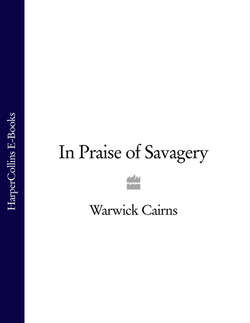Читать книгу In Praise of Savagery - Warwick Cairns - Страница 8
Sultan of Aussa
ОглавлениеTo the east of Abyssinia there lies a desolate volcanic plain, strewn with ash and tumbled black rocks, almost entirely empty of life and swept constantly by a burning salt wind. What vegetation there is grows close to the banks of the slow-flowing, mud-red Awash River, which winds its way down from the mountains, down through deep gorges and into the barren desert, where live the people known as the Danakil, who were, at one time, a murderous tribe split into two great bands, the Adoimara, or White Men, and the Asaimara, or Red Men. Among these Danakil, both Adoimara and Asaimara, a man’s status was judged, entirely, by the number of men, women and children he had killed. This he might do by any means he pleased, no matter how treacherous. When they were not killing outsiders, or engaging in feuds with surrounding tribes, the two bands of the Danakil expended their time and their energies on killing each other.
The river flows on and on through the Danakil lands for mile after mile until there rises, in the distance, a line of purple hills known as the Magenta Mountains. There is a steep and narrow pass in these mountains, and the river flows through it, pouring down into an extraordinary oasis, shut in all round by sheer precipices of black rock. Some thirty miles square, it is a place of thick forest, deep swamp and huge lakes.
This is the land of Aussa, and it was, in the 1930s, the home of a great Danakil army who owed their absolute loyalty to the Sultan of that place, whose palace lay deep within the forest.
The Sultan, in those days, was a small, intense-eyed man called Muhammad Yuya. His father, the Sultan before him, had on his deathbed called for two slaves to be brought before him, one male and one female; and he had had them both slaughtered there, in the hope of seeing, in their death-agonies, some clue or portent that might help him escape his predicament. He could not. But no doubt it passed the time.
The river flows around Aussa on three sides, looking for a way out into the desert land beyond, where at some further point, before reaching the coast at Djibouti, it disappears. No one outside Aussa ever knew where it went.
There had been attempts to discover the river’s destination, over the years; and over the years there had been a number of expeditions to Aussa, but none had ever returned alive.
An expedition, in 1875, led by the Swiss explorer and mercenary Werner Munzinger, accompanied by his wife and children, were all murdered before reaching the borders of Aussa. In 1881, two Italians, Giuseppe Giulietti and Ettore Biglieri, had mounted an expedition to cross the country to the north of Aussa to establish a new trade route. Their bodies were found lying in the desert, horribly mutilated. Three years later, fourteen armed Italian sailors had tried to cross the same land from the opposite direction. They, likewise, were all killed. And in the 1920s, a party led by two Greek animal-collectors was hacked to death, although a third Greek managed to escape, crawling away on his hands and knees in the brief space between being left for dead and the corpse-mutilators getting down to their work.
In 1933, at the age of twenty-three and not long down from Oxford, Wilfred Thesiger made a decision.
‘I will bloody well go and do it myself,’ he said.
